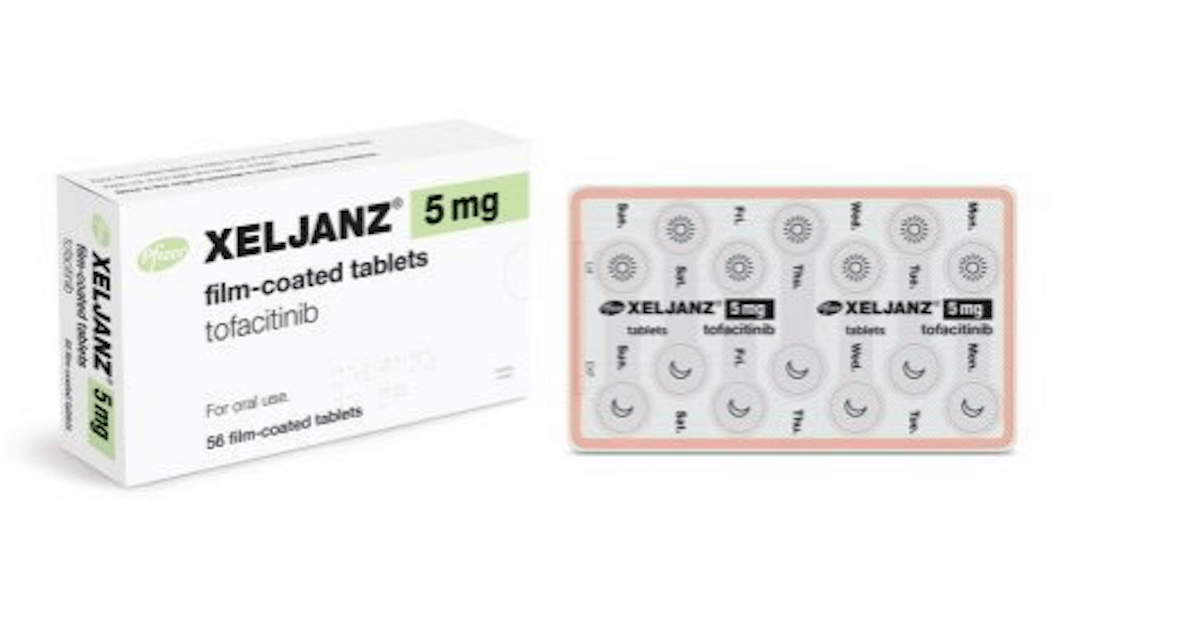What Should Rheumatoid Arthritis Patients Do?
- If you are taking Xeljanz for rheumatoid arthritis, talk to you doctor as there is evidence from a new study that the drug increases a person’s cancer risk.
- Carcinogens are linked to causing cancer. However, even though we are exposed to carcinogenic material every day, many people will not go on to develop the disease.
- Individuals taking JAK inhibitors Xeljanz, Olumiant or Rinvoq should inform their health care professionals. Patients should also inform their doctor if they have suffered a heart attack or similar cardiac incident, stroke or have been prone to blood clots in the past.
A new study published in The New England Journal of Medicine confirms a link between Xeljanz and a patient's risk of developing cancer, as well as cardiovascular events, such as heart attack.
Read MoreAfter follow-ups at the four-year mark, incidences of cancer and cardiovascular events were higher with the Xeljanz doses 3.8% (98 patients) and 4.2% (122 patients), respectively than patients taking a TNF inhibitor 2.5% (37 patients) and 2.9% (42 patients), respectively.
The study concluded that in comparison, "risks of MACE (major adverse cardiovascular events) and cancers were higher with tofacitinib and did not meet noninferiority criteria. Several adverse events were more common with tofacitinib." (Noninferiority trials are used to assess whether the effect of a new drug is not worse than an active comparator within a specific margin, according to the National Institute of Health.)
The study was done in response to a U.S. Food and Drug Administration mandate that Xeljanz's drugmaker, Pfizer, put a cancer-risk warning label on the drug.
The FDA mandate was based on an FDA review of a "large randomized safety clinical trial, we have concluded there is an increased risk of serious heart-related events such as heart attack or stroke, cancer, blood clots, and death with the arthritis and ulcerative colitis medicines Xeljanz and Xeljanz XR," an official FDA statement reads. (This was a separate study than NEJM’s study, but showed similar results.)
(The FDA approved Xeljanz in 2012, almost 20 years after Pfizer joined forces with the National Institute of Health to develop the drug. In addition to its approval to treat the symptoms of rheumatoid arthritis, Xeljanz is also approved to treat psoriatic arthritis, ulcerative colitis and polyarticular juvenile idiopathic arthritis.)
Out of an abundance of caution, the FDA also required that the drugmakers of similar medicines Olumiant (baricitinib) and Rinvoq (upadacitinib) include similar warnings on the labels of their respective drugs.
Related: Do Benzene and Formaldehyde Cause Acute Myeloid Leukemia (AML)?
These two medications were not included in the FDA trial but, along with Xeljanz, are JAK inhibitors.
The FDA has also advised that doctors can only prescribe JAK inhibitors after a rheumatoid arthritis patient has tried, and failed, at least one tumor necrosis factor (TNF) inhibitor.
Carcinogens & Cancer
Xeljanz has carcinogenic potential. Carcinogens are linked to causing cancer.
However, even though we are exposed to carcinogenic material every day, many people will not go on to develop the disease.
"We create carcinogens all the time in our foods when we cook them, and very few of us get cancer because our bodies can handle them," Dr. Robert Wright, chair of the Department of Environmental Medicine and Public Health at Mount Sinai, tells SurvivorNet. "But some people have susceptibilities to these environmental carcinogens, which might be genetic or might be caused by combinations of carcinogens."
He adds that it is important to understand that no one trigger is going to definitively cause cancer. But it could be a combination of triggers in the environment.
"Cancer isn't caused by one event, typically, it's usually a series or combination of events," he says. "So, it may be that you ate a lot of charred food, it may be that you're also a smoker, it may be that you've inherited a genetic susceptibility to be a little bit more sensitive to those chemicals."
What Should Rheumatoid Arthritis Patients Do?
Individuals taking JAK inhibitors Xeljanz, Olumiant or Rinvoq should inform their health care professionals. Patients should also inform their doctor if they have suffered a heart attack or similar cardiac incident, stroke or have been prone to blood clots in the past.
Those who smoke or used to smoke should also inform their doctor, as they may be at a higher risk of suffering an adverse side effect while taking these medications.
In addition, immediately seek medical attention if you are taking one of the drugs and suddenly experience:
- Discomfort in the center of your chest that lasts for more than a few minutes, or that goes away and comes back
- Severe tightness, pain, pressure or heaviness in your chest, throat, neck or jaw
- Unusual pain or discomfort in your arms, back, neck, jaw or stomach
- Shortness of breath with or without chest discomfort
- Breaking out in a cold sweat
- Nausea or vomiting
- Feeling lightheaded
- Weakness in one part or on one side of your body
- Slurred speech
- Drooping on one side of your mouth
- Swelling of a leg or arm
- Leg pain or tenderness, or red or discolored skin in the painful or swollen leg or arm
Reach out to your health care professional if you experience swelling of lymph nodes in your neck, armpits or groin; constantly feeling tired; fever; night sweats; persistent or worsening cough; difficulty breathing; hoarseness or wheezing; or unexplained weight loss.
Contributing: SurvivorNet staff
Learn more about SurvivorNet's rigorous medical review process.


